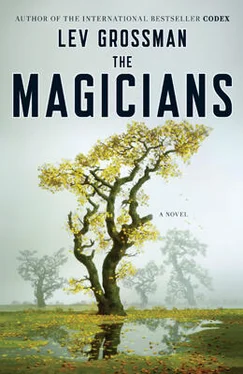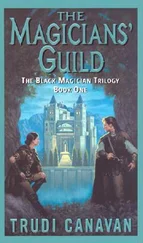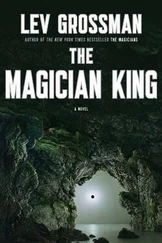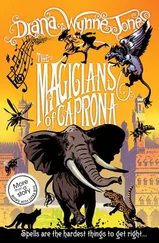He was a year behind Quentin and Alice, but by the end of his Fourth Year Penny had decided — he explained, once his audience was assembled and dressed and arranged around him in the living room with drinks and plates, standing or lying full length on couches or sitting cross-legged on the floor as their physical and emotional conditions permitted — that Brakebills had taught him everything it was going to teach him, so he dropped out and moved to a small town in Maine, a few miles north of Bar Harbor. The town was called Oslo, a seedy little resort village with a population that shrank by 80 percent in the off-season.
Penny chose Oslo — not even New Oslo, just Oslo, as if they thought they came up with it first — for its total lack of anything that might distract him. He arrived in mid-September and had no trouble renting a small farmhouse on the outskirts of town on a one-lane rural route. His land-lord was a retired schoolteacher who handed him the keys and then fled to his winter home in South Carolina. Penny’s nearest neighbors on either side were a congregationless one-shack Pentecostal church and an out-of-session summer camp for disturbed children. It was perfect. He had found his Walden.
He had everything he needed: silence; solitude; a U-haul trailer packed with an enviable library of magical codices, monographs, chapbooks, reference books, and broadsheets. He had a sturdy desk, a well-lit room, and a window with an unscenic view of an unmown backyard that offered no particular temptation to gaze out at it. He had a manageable, intriguingly dangerous research project that showed every sign of maturing into a genuinely interesting line of inquiry. He was in heaven.
But one afternoon a few weeks after he arrived, as he sat at his desk, his watery blue eyes trailing over words of consummate power written centuries ago with a pen made out of a hippogriff feather, Penny found his mind wandering. His large, usually lineless brow crinkled. Something was sapping his powers of concentration. Was he under attack, maybe by a rival researcher? Who would dare! He rubbed his eyes and shook his head and focused harder. But his attention continued to drift.
It turned out that Penny had discovered in himself a weakness, a flaw he never would have suspected himself of in a thousand years, an age to which, with a few careful modifications that he would look into when he had the time, he had every intention of living. The flaw was this: he was lonely.
The idea was outrageous. It was humiliating. He, Penny, was a stone-cold loner, a desperado. He was the Han Solo of Oslo. He knew and loved this about himself. He had spent four interminable years at Brakebills surrounded by idiots — except for Melanie, as he privately referred to Professor Van der Weghe — and now he was finally free of their incessant bullshit.
But now Penny found himself doing things for no reason. Unproductive things. He stood on a concrete dam near his farmhouse and threw down rocks to break up the thin crust of ice that formed on the outflow pond. He walked the mile and a half to the center of town and played video games in the windowless video arcade back behind the pharmacy, stuffing his mouth with stale gumballs from the gumball machine, alongside the no-hope, dead-eyed teenagers who hung out there and did the exact same thing. He made awkward, inexperienced eyes at the underage clerk at the Book Bin, which actually sold mostly stationery and greeting cards, not books. He confided his troubles to the miserable pod of four buffalo who lived on the buffalo farm out on the Bar Harbor road. He thought about climbing over the fence and petting one of their huge, wedge-shaped heads, but he didn’t quite have the nerve. They were big buffalo, and you never knew what they were thinking.
That was September. By October he had bought an herb-green Subaru Impreza and was making regular trips to a dance club in Bangor, swigging from a fifth of vodka on the passenger seat (since the club was all ages and didn’t serve alcohol) as he drove the forty-five minutes through trackless pine forests. Progress on his research project had dwindled to almost nothing, a couple of hours a day of listless leafing through old notes punctuated by generous breaks for online porn. It was humiliating.
The dance club in Bangor was open only on Friday and Saturday nights, and all he did there was shoot pool in a half-lit lounge area off the main dance floor with other creepy male loners like himself. But it was in that half-lit lounge on one of those Saturday nights that he spotted, to his secret consternation and even more secret relief and gratitude, a familiar face. It was a hard face to like, the face of an emaciated corpse that hadn’t been particularly attractive even in life, with a horrible pencil mustache on its upper lip. It belonged to the itinerant salesman Lovelady.
Lovelady was in the dance club in Bangor for approximately the same reason that Penny was there: he had run as far away as he could from the world of Brakebills and magic and then gotten lonely. Over a pitcher of Coors Light and a few games of pool, all of which Lovelady won handily — you don’t spend a lifetime trafficking in fake magical items without picking up a few real skills — they exchanged stories.
Lovelady depended heavily for his livelihood on luck and the gullibility of strangers. He spent most of his time trolling the world’s junk shops and estate sales the way longline fishermen troll the ocean. He accosted the emotionally vulnerable widows of recently deceased magicians and loitered on the outskirts of the conversations of his wisers and betters, keeping his eye out for anything that had value or that might plausibly be made to appear to have value. He had spent the past few months in northern England, in a studio apartment over a garage in a dreary suburb of Hull, trying his luck in antique stores and secondhand bookshops. His days were spent on buses and, when he was really down on his luck, on an ancient one-speed bicycle he borrowed without permission from the garage, which he wasn’t supposed to have access to.
At some point during his stay Lovelady began to receive unwanted attention. Normally he was desperate for anybody to pay attention to him, anybody at all, but this was very different. Strangers on buses stared fixedly at him for no reason. Pay phones rang when he walked by them. When he counted his change, he found only coins from the year he was born. When he watched TV, all he saw was an image of his own face, with a mysterious empty city in the background. Lovelady was neither learned nor particularly intelligent, but he survived on his instincts, and all his instincts told him that something was gravely amiss.
Alone in his apartment, sitting on his pea-soup-colored foam couch, Lovelady took stock. His best guess was this: he had inadvertently acquired an object of genuine power, and something out there coveted it. He was being hunted.
That same night he pulled up stakes. He abandoned his security deposit, donned a rattling array of charms and fetishes, took a bus to London and the Chunnel train to Paris, and from there crossed the Atlantic to throw himself on the already overtaxed mercy of Brakebills. He spent an exhausting afternoon combing the woods north of New York for the school’s familiar, comforting compound.
As the sun set through the trees, and the early winter chill gnawed at the tips of his ears, the horrifying truth sank in. He was in the right place, but Brakebills would no longer appear to him. Something, either him or his wares, was objectionable to the school’s defensive spells. Whatever he was carrying had rendered him untouchable.
That was when he cut and ran to Maine. It was ironic: for once in his life Lovelady had lucked into something genuinely powerful, a big score. But it was too much luck all at once. He was out of his league. He could have dumped his stock, all of it, right there in the middle of the frozen woods, but after a lifetime of greedy scrimping he didn’t quite have the gumption. It would have broken his avaricious heart. Instead he rented a Kozy Kabin in the woods at the off-season rate and conducted a thorough inventory.
Читать дальше












